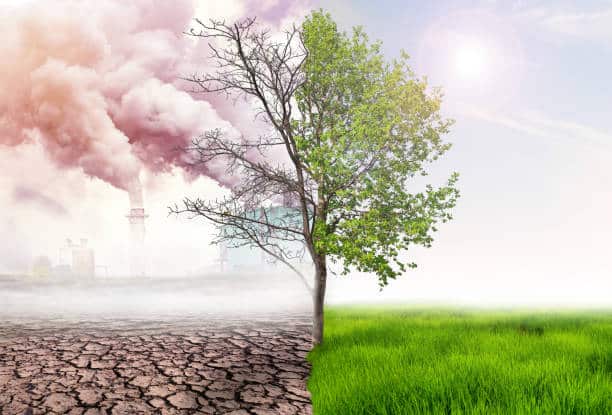On the August 26 episode of The Final Word, Abby Hughes talks about climate anxiety and other negative feelings to do with the state of the planet. She speaks with public and mental health nurse Natania Abebe, who created a toolkit for combating these “earth emotions.” Plus, a member of the Student Christian Movement’s climate justice and anxiety group, Divy Sallentes Uptegrove, will speak to the power of working through these feelings with others.
If thinking about climate change makes you feel sad, scared, or overwhelmed, you’re not alone. More and more people are reporting negative feelings to do with the state of the planet. The most common name for this feeling is climate anxiety.
Natania Abebe is a recent grad of the University of British Columbia’s masters of science in nursing program. While there, she was a TA for a nursing course on mental health and climate change that left her feeling rather hopeless about the climate crisis.
“The more I spent time with course material, the more I was just like, I don’t feel good,” said Abebe. “ It’s one of those double edged swords. The more you know, the worse you feel in some ways. You have to work extra hard to sort of protect your mental health.”
Abebe wanted to find a way to work through her feelings. That spurred her into action, and she wound up creating an eco emotions toolkit in collaboration with students and professors from the mental health and climate nursing class.
“I really wanted to get a message out there about the relationship between climate change and mental health. I also wanted to provide a scaffolding for people to explore further if they wanted to learn more, but also take care of their own mental well being.”
Abebe created a thirty-minute documentary, available on YouTube, which leads to a toolkit. The toolkit is organized by the type of “earth emotion” the user is feeling. Eco emotions aren’t mental illnesses, they exist more as terms to describe a common feeling.
And while there are many eco emotions, Abebe said she chose to focus on just three in order to keep the workbook simple. She says that climate anxiety is the most common, but the resource also explores ecological grief and eco paralysis.
“Ecological grief is the sadness you feel with regards to the state of the planet. And you often see it in indigenous communities,” says Abebe.
“Eco paralysis is actually something I noticed a lot,” she says. “It’s this feeling of, you’re so overwhelmed, so paralyzed by climate change that you don’t even want to engage with the topic whatsoever.”
The toolkit asks users to reflect on their personal beliefs with respect to the environment, and helps them find actionable ways of mitigating climate change.There’s also a number of external resources available in that toolkit for those interested in reading further.
“We’re not asking you to save the world. But maybe you find something that helps mitigate the impacts of climate change and also makes you feel better. Then that’s a win-win solution. That’s really what the toolkit is designed to be.”
While Abebe’s toolkit is something people can do on their own to feel better, there’s a lot to be said for working through these feelings together. That’s why a number of organizations are starting groups specifically about climate anxiety. One of these is the Student Christian Movement (SCM), which puts a lot of emphasis on social justice of all kinds, including eco justice.
Divy Sallentes Uptegrove is a member of the SCM, and a member of their eco justice group that focuses on climate anxiety.
“It’s a group of people who recognize that climate anxiety is part of their life, and a part of a lot of people’s lives,” says Sallentes Uptegrove. “We’ve learned about healthy coping mechanisms and in every meeting we try to implement them. One of them is building a relationship with nature that can make people more resilient, and can make you more able to handle stress. Not only for eco anxiety, but in every aspect of your life.”
Any students or recent grads are welcome to come to the group – it’s not exclusive to members of SCM. The group often focuses their meetings around a study or reading. In their last meeting, for example, the group focused on an article Sallentes Uptegrove highly recommends, called Eco-Anxiety at University. It focuses on how to cultivate healthy emotional responses to the climate crisis.
While the emotions they work through are difficult, Sallentes Uptegrove says they usually leave the meetings feeling more positive.
“I feel enlightened,” they say. “Usually you’ve learned something that now you’re like, oh, I feel like I need to readjust now. Or I need to dig into this more.”
“I think at the end folks come out like, it’s like an accomplishment. Like, oh, I’m doing something about this. That’s the sense I got.”
Resources:
Natania Abebe’s toolkit – https://pressbooks.bccampus.ca/eccmh/
The SCM eco justice group’s last reading – https://digitalcollections.sit.edu/isp_collection/2642/









